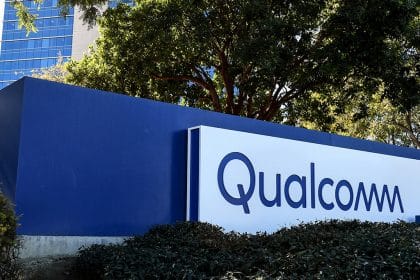Qualcomm saw impressive growth in its business segments including its handset sales, RF Front end, Automotive, and IoT which collectively represents the QCT Revenue Stream.
The shares of American technology firm Qualcomm Inc (NASDAQ: QCOM) have dipped by 8.83% following the report of revenues lower than Wall Street’s expectations. For the first quarter of the 2021 fiscal year, the chipmaker announced revenue of $8.23 billion as compared to the $8.27 expected.
Despite the poor performance of the firm when compared to Wall Street’s expectations, the firm grew both its revenue and earnings per share year-over-year as the company’s business has been boosted by the increased adoption of 5G technology in smartphones.
“We delivered an exceptional quarter, more than doubling earnings year-over-year due to strong 5G demand in handsets and growth in our RF front-end, automotive and IoT adjacencies, which drove record earnings in our chip business,” said Steve Mollenkopf, CEO of Qualcomm Incorporated. “We remain well positioned as the 5G ramp continues and we extend our core technology roadmap to adjacent industries.”
Qualcomm (QCOM) reported earnings per share of $2.17 per share, adjusted, versus $2.10 estimated by analysts. The sales grew 63% year-over-year while the earnings were steered by 119% year-over-over.
Despite Qualcomm’s difficulty in doing business with one of its biggest customers, Huawei Technologies in 2020 owing to restrictions imposed by the Trump administration, the firm saw a boost in demand for its semiconductors and chips, as demand for 5G embedded smartphones and home appliances.
The firm also reported $2.604 billion Earnings Before Tax in the Q1 2021 period as against the $947 million reported in the year-ago period. Net Income reported also came in at $2.455 billion as compared with the $925 million reported in the first quarter of 2020.
While the shares of QCOM closed 8.83% down, it is showing a good potential for re-ignition in the pre-market with a 0.83% gain.
Qualcomm (QCOM) Business Segment Growth
The San Diego-based firm saw impressive growth in its business segments including its handset sales, RF Front end, Automotive, and IoT which collectively represents the QCT Revenue Stream. This represents the applications in which Qualcomm’s applications are sold.
Revenues from Handsets topped $4.2 billion as against the $2.35 billion reported in the year-ago period. RF Front End brought in revenues of $1.06 billion, a 157% growth from the $413 million reported in the year-ago period. The automotive segment added $212 million worth of revenue while the IoT segment in which QCOM’s technologies were applied brought in a revenue of $1.044 billion, a 48% growth year-over-year.
Qualcomm’s earnings report is the first since the firm announced that its CEO will be replaced by the current company’s President Cristiano Amon after Mollenkopf retires. Navigating 2020 amidst a pandemic and business restrictions to give the impressive earnings reported shared in the Q1, QCOM is projecting a QCT revenue in the range of $6.0 to $6.5 billion for the 2021 fiscal year.
The Biden administration may help repair trade ties with China which may further boost the firm’s engagement with Huawei, a move that will further boost the QCOM’s future performance.
next